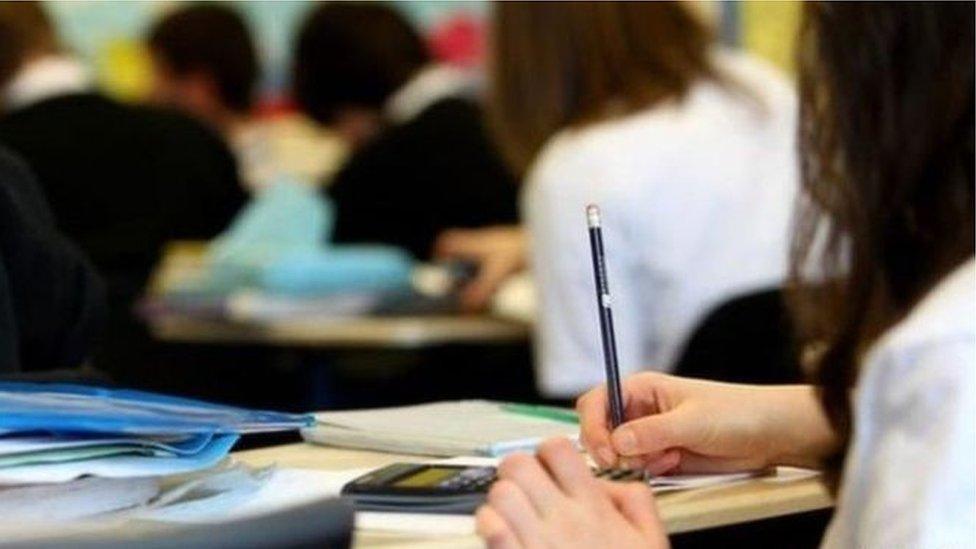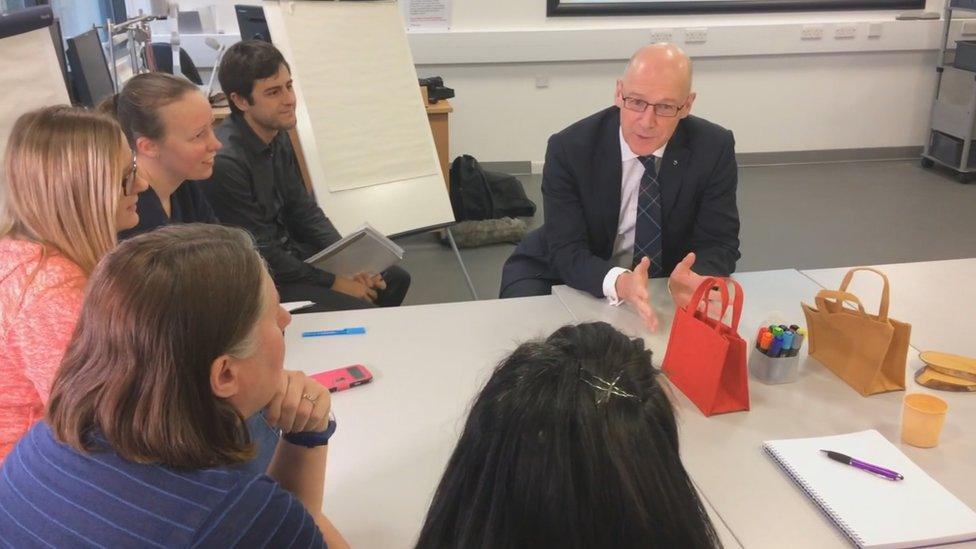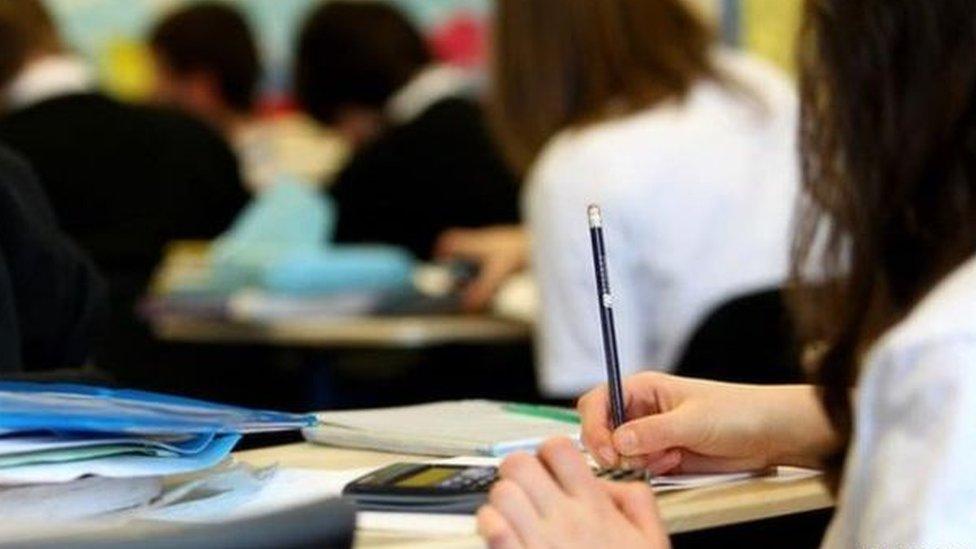College lecturers balloted over strike action
- Published

College lecturers are being balloted on strike action for a second time as part of a long-running dispute over pay.
Negotiations have been ongoing between the Educational Institutional of Scotland (EIS) and Colleges Scotland over a pay deal that was agreed a year ago.
A more "harmonised" pay deal had been accepted, however, this has yet to be implemented.
College Scotland has called EIS's requests "unreasonable."
More negotiations are set to take place next week.
'Negative spin'
Larry Flanagan, EIS Scotland's general secretary, said: "After more than a year of waiting for colleges to deliver this binding agreement that was supposed to deliver pay harmonisation across the country, the patience of Scotland's further education lecturers is now exhausted.
"Firm promises were made to lecturers on pay harmonisation across the sector, following many years of differing pay for lecturers doing the same job in colleges across the country.
"It is now time for college managers to stop their negative spin about the deal and to deliver the agreement that was struck last year."
EIS-FELA president John Kelly added: "While no lecturer relishes the prospect of taking strike action, the inaction of management on the delivery of this year-old agreement has forced us to pursue this dispute.
"We must increase the pressure on Scotland's college principals to compel them to honour the deal and deliver their promises on fair pay for all lecturers across Scotland."
'Unreasonable demands'
Earlier in March, 97% lecturers voted to take industrial action if the dispute was not settled.
The EIS want lecturer contracts to be reduced from 24 hours to 21 to focus on marking student work, however College Scotland want to increase this to 26 hours.
EIS's requests are set to cost £27m with a 9% pay increase part of the deal.
A spokeswoman for Colleges Scotland said: "Students and the college sector can only be damaged by the EIS's unreasonable demands in the national bargaining talks.
"The EIS demands can only mean less teaching time for students at a higher cost to the tax payer.
"We firmly believe this is a good package that people in other sectors would warmly welcome, yet the EIS seems determined go down the road of disruptive strike action instead."
She said the parties involved had agreed to meet again on Thursday to continue talks.
- Published30 November 2016

- Published30 September 2016

- Published10 June 2016
